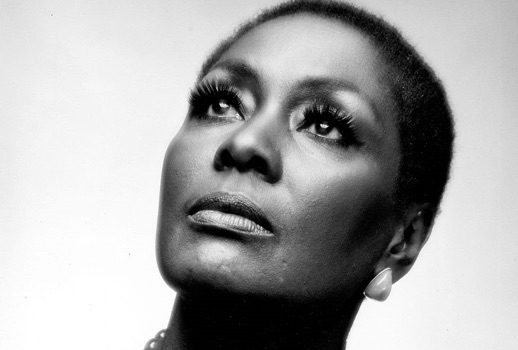
Verrett’s career began a decade before her 1968 Met debut as Carmen, at which time she had already sung in Köln, and at New York City Opera, The Royal Opera at Covent Garden, and the Bolshoi Theater. She introduced her Dalila to La Scala in 1969.
After receiving a positive, if not exactly overwhelming, reaction to her first dozen Met performances in Carmen, Don Carlo, Aida, and Il trovatore, she was thrust into national headlines when, on opening night of the Met’s premiere of Les Troyens in 1973, she subbed for an ailing Christa Ludwig at the last minute and triumphed as both Cassandre and Didon.
That was my first experience with her, and my love for her musicianship, grace and beauty, dramatic acuity, and especially her wide-ranging, silvery mezzo grew with each new role.
Among my most treasured memories are Verrett’s electric Judith in A kékszakállú herceg vára (sung in English), of which I attended all 12 performances; Neocle in the rather bastardized edition of L’assedio di Corinto, in which her marathon 15-minute coloratura scena at the beginning of Act III on some nights garnered a longer, louder ovation than that awarded to debutant Beverly Sills; a youthful Adalgisa with alternate high notes to burn opposite Montserrat Caballé, as well as her first-ever performance as the titular Druid priestess in Boston in 1976 (I flew over for the show in the middle of a Provincetown vacation).
She held her own as Madam Lidoine in the Met premiere of Dialogues des Carmélites (in English), and against Luciano Pavarotti in the company’s first performances of La favorite (in Italian) in 73 years.
She brought her first soprano role, Tosca, to the Met in 1978 opposite Pavarotti, soon followed by her first Normas at Lincoln Center, but Leonore in Fidelio was not a success, and she cancelled as many performances as she sang. She sang only one Met performance of another parade role, Verdi’s Lady Macbeth in 1988.
She brought her Dalila to Lincoln Center in 1990, also with Domingo, a decade after the San Francisco Opera performance featured this week. Two Azucenas the following month marked the end of her Met career, at which point she was 58-years-old.
Domingo, 39 at the time of this performance, was just beginning to take on the dramatic roles which he favored for the later part of his career, having sung his first Otello the year before. There is still a youthful gleam and power in his upper register which would not remain there much longer.
It also took him another decade to bring his Samson to Lincoln Center, but he maintained it in his active repertoire until 2001; he cancelled six performances as Samson in 2006, which marked the most recent Met performances of the opera.
One could wish for a more suave, French baritone as the Grand-Prêtre de Dagon than Wolfgang Bredel, but he gets the job done (what there is of it). Julius Rudel offers a passionate, wildfire reading of the score.
And what of that score? Saint-Saëns was an admirer of the oratorios of Händel and Mendelssohn, and decided in 1867 to compose his own to a Biblical story. A relative’s young husband convinced the composer that it should be a full-fledged opera, and not the extended duet with choral interjections that Saint-Saëns had envisaged.
Finding the subject matter unsuitable for the stage, the French public rejected the idea after only the second act had been completed. It would take several years plus the convincing of Franz Liszt, who also guaranteed a Weimar premiere, for Saint-Saëns to complete the opera in 1876.
The premiere was sung in German in Weimar the following season, and then in Hamburg; it did not reach Paris until 1890. The opera quickly spread throughout France and to Monte Carlo, and reached Carnegie Hall in 1892, in concert form.
After a few Met performances with Francesco Tamagno, it took the team of Enrico Caruso and Margarete Matzenauer to turn it into a company staple: there has not been a decade without a revival or new production since those 1915 performances. Rumors have Elina Garanca and Bryan Hymel teaming-up for a new production in the 2018/2019 season.
Camille Saint-Saëns: Samson et Dalila
San Francisco Opera
Julius Rudel, conductor
18 September 1980
Samson – Plácido Domingo
Dalila – Shirley Verrett
Le Grand-Prêtre de Dagon – Wolfgang Brendel
Abimélech – Arnold Voketaitis
Un vieillard hébreu – Kevin Langan
Un messager philistin – Robert Tate
Premier Philistin – Michael Ballam
Deuxième Philistin – Stanley Wexler


